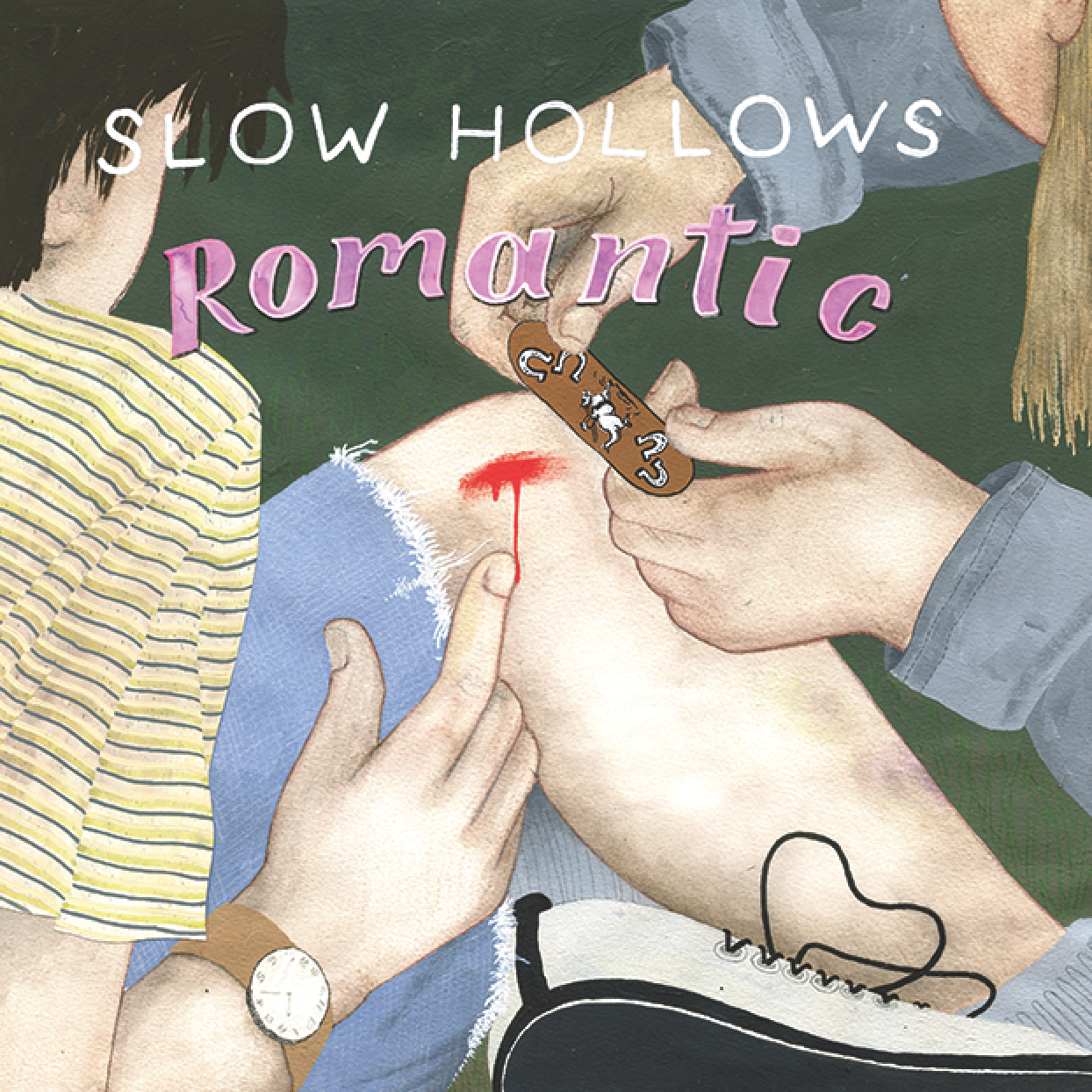“Romantic” by Slow Hollows


Slow Hollows is chasing emptiness. Perhaps we all are. The Los Angeles-based group, originally just “Hollows,” has gone from more post-punk to post-pop since the 2014 debut, I’m Just As Bad As You Are. Though their sound has evolved over time, they’ve managed to remain in a strangely timeless state of forever afterwards, always post-something, defined mostly by what they are not. Their songs sound like eddies playing out in the wake of a wave that has long since crashed. Maybe they are part of the next one just now swelling into existence. Looking out over the horizon, it’s hard to tell.
Their latest release, Romantic, is a tight nine-track album exploring a kind of emptiness in the chest, the absence of something immaterial, something you can’t quite put your finger on except to say that it’s missing. Most of the cuts play like breakup songs, speaking to a vague “you” in the past tense, evoking a millennial everyman’s brand of melancholy.
Their sound has become decidedly cleaner since their debut, which is a typical phenomenon among indie bands whose aesthetic is determined in large part by the quality of their recording equipment. Romantic is the group’s crispest project yet, layering newfound horns over plucky guitar, tracing familiar progressions, though the chords themselves tend to be slightly diminished, vaguely discordant, evoking a tension beyond the familiarity.
https://www.youtube.com/watch?v=c3QQ9Ua97eE
Most notably changed is the voice of singer Austin Feinstein, whose vocals on earlier cuts often came distorted, shrouded behind a curtain of reverb, humming with a garage-rocker’s out-of-tune energy. His lines here are cleaner, more reserved, and he’s more confident in his range and diction, able now to draw the songs around himself, rather than simply sit in the middle of them.
All in all, Romantic doesn’t feel so much groundbreaking as archetypal — there’s an intentionality behind the vague angstiness, a sound that reminds you of the time you got dumped in high school, or that rainy day when you sat alone and wondered where your life might take you. Later, you’d look back on yourself, smiling a little at what it felt like, sure as you were that you knew what love was.»
– Henry Whittier-Ferguson




